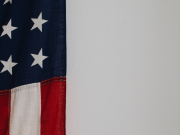This article appears in the fall 2012 issue of Academic Questions (volume 25, number 3): "A Crucible Moment? A Forum on the President's Call for a New Civics."
Diana Schaub is professor of political science at Loyola University Maryland, Baltimore, MD 21210; [email protected]. She is a member of the Hoover Institution’s Jill and Boyd Smith Task Force on the Virtues of a Free Society.
A “civic recession” is as worrisome as an economic recession. A Crucible Moment: College Learning & Democracy’s Future should be praised for acknowledging our peril and seeking to rebuild our “depleted civic capital.”[1] Welcome, too, is the report’s conviction that colleges must offer more than workforce training. Citizenship should be a feature of education at all levels. No one stated this more clearly than Thomas Jefferson in what might be the nation’s first report from the educational trenches, his 1818 Report of the Commissioners for the University of Virginia.[2] Acquaintance with this historic text can help us judge whether the current document provides the right sort of stimulus for our ailing civic economy.
As set forth by Jefferson, the objects of education are both practical and political. Jefferson describes what each citizen needs to know for “his own business,” which turns out to include each citizen’s substantial share in the public business. So, in addition to the three R’s, Jefferson calls for each citizen “to understand his duties to his neighbors and country, and to discharge with competence the functions confided to him by either” and “to know his rights; to exercise with order and justice those he retains; to choose with discretion the fiduciary of those he delegates; and to notice their conduct with diligence, with candor, and judgment.” Beyond the blend of “duties, interests, and rights” necessary for all citizens, Jefferson specifies a special civic purpose for higher education. The university that Jefferson founded was tasked “to form the statesmen, legislators and judges, on whom public prosperity and individual happiness are so much to depend.” Toward that end, Jefferson recommended the study of government, law, political economy, and morals. Even the sciences he understood to have a public dimension, since they “administer to the health, the subsistence, and comforts of human life.”
Like the authors of A Crucible Moment, Jefferson saw the need for civic learning to permeate education from start to finish, with increasing expectations and sophistication as students proceed. There are, however, significant differences in the two approaches. Jefferson is attentive to the unique demands of the American constitutional order. Our political system is representative in nature. All citizens must be prepared to fill the offices of elector and juror (and, as Jefferson insists, that requires no small degree of diligence and judgment), but only a subset will fill higher public offices. A Crucible Moment manifests no recognition of this, and indeed, seems intent on rejecting or denying it. The word “democracy” is continually evoked but never once with the qualifier “representative.” This is a civics that is not rooted in the actual ground of the civitas.
Another sign of the report’s alienation from American politics is the downplaying of the nation-state. There is much talk of “local and global generative partnerships” and “transformative” alliances, but the United States itself is oddly absent. This is not a civics that has as one of its aims the fostering of national loyalty. “Patriotism” is another word that never appears. While Jefferson himself certainly advocated the importance of small-scale community (as in his system of “ward” democracy), and while he also expressed world-encompassing humanitarian sentiments, he felt no embarrassment in speaking of our duties to our country. One has the distinct impression that the authors of A Crucible Moment regard patriotism as atavistic. Theirs is a “national call” for global engagement and global citizenship.[3]
One can imagine Jefferson responding favorably to A Crucible Moment’s endorsement of “active” civics. Book learning can and should be supplemented with a kind of internship in liberty that allows young people to try their hand at self-government. In addition to time-honored pursuits like mock elections, trials, and legislatures, as well as student government and debate, the report strongly recommends service learning as a more contemporary method for developing what Tocqueville called “the art of association.” Unfortunately, however, the report associates active citizenship almost solely with activism; participation seems always to be for the purpose of change, especially systemic change, rather than conservation (with the predictable exception of environmental conservation).
Moreover, the highly partisan character of this “real change” is obscured. “Civic” is understood as “collaborative” “cooperative,” “collective,” co-this and co-that. Thus, the usual stuff of political life, especially political parties and interest groups, is disparaged. The report rightly stresses the need to listen to and respect the views of others, but meantime its own favored model of civic interaction risks becoming a new kind of social conformism and oppressive groupthink. (This is most evident in the plans for assessing whether colleges are achieving the desired civic mobilization.) While we want citizens who work well with others, we also want citizens who have the independence to form their own opinions, the courage to stand apart from the crowd, and the statesman’s ability to persuade and guide others.
My own wish would be for a civic education at once more patriotic (especially, but not only, in early schooling) and more philosophic, particularly in its willingness to interrogate democracy. Such an education would challenge the assumption that if democracy is good, more democracy is better. It would explore the deficiencies of democracy and how a democratic republic, through its institutions, those deficiencies. It would inquire into the status of excellence in an egalitarian order.
I suspect that the civic ignorance of the young is more a result of their indifference than a failure on the part of their teachers to present the basics of American history and government. We won’t succeed in dispelling that apathy without first fostering love of country. While we need more care for the formation of the heart, heart alone is not enough. Especially at the high school and college levels, civic education must be interwoven with a truly liberal education (liberal not in any ideological sense, but in the Socratic sense). This is not an altogether easy or tension-free combination, and it certainly wasn’t even possible in the democracies of the ancient world—Athenian civic indoctrination had little tolerance for the questions raised by Socrates. Happily, the American version of democracy has from the beginning been able to combine affection and reflection. In a wonderful passage rediscovered by a college student of my acquaintance (who possesses just this sort of full heart and fine mind), John Quincy Adams spells out the moral and intellectual effects of reverence for the American past. Respect for our forebears “excites…interest in their history, attachment to their characters, concern for their errors, involuntary pride in their virtues.”[4] We can be attached and proud, while still inquiring and critical.
For an example of civic education inspired by a dialogue between heart and head, I would offer What So Proudly We Hail: The American Soul in Story, Speech, and Song.[5] This anthology (and the linked curriculum at www.whatsoproudlywehail.org) which I helped assemble along with my co-editors Amy and Leon Kass, invites students, and all Americans, to experience and explore the many elements of their American identity through the medium, primarily, of imaginative literature. From Nathaniel Hawthorne to Willa Cather, from Herman Melville and Mark Twain to Alice Walker, John Updike, Ralph Ellison, and Wallace Stegner, America’s creative masters have crafted lively and multilayered depictions of the American creed and character, achieving compelling, and often competing, visions of this American life of ours. With the hope of e pluribus unum in view, we welcome readers to share in the enjoyment and discussion of our national heritage of stories, speeches, songs, and symbols.
[1]The National Task Force on Civic Learning and Democratic Engagement, A Crucible Moment: College Learning & Democracy’s Future (Washington, DC: Association of American Colleges and Universities, 2012).
[2]Thomas Jefferson, Report of the Commissioners for the University of Virginia, August 4, 1818, text available at http://etext.virginia.edu/etcbin/toccer-new2?id=JefPapr.sgm&images=images/modeng&data=/texts/english/modeng/parsed&tag=public&part=14&division=div1. Further references to this work can be located within this document.
[3]It should be remembered that A Crucible Moment is a committee product and not fully indicative of the views of the signatories. Thus, Eric Liu, who was a member of the thirteen-person commission, has written very beautifully and confidently of the need to “re-Americanize Americans.” Avowedly progressive himself, he nonetheless challenges his fellow progressives to abandon their allergic reaction to American exceptionalism. He points out how in the context of the revolutionary American creed, conservatives and progressives might find more common ground than either expected. Check out his essay, “Sworn-Again Americans,” Democracy, no. 24 (Spring 2012), http://www.democracyjournal.org/24/sworn-again-americans.php?page=all.
[4]John Quincy Adams, “An Oration Delivered at Plymouth, December 22, 1802, at the Anniversary Commemoration of the First Landing of Our Ancestors, at That Place,” cited by Jeremy Rozansky, “Natural-Rights Conservatism: The Political Philosophy of John Quincy Adams” (bachelor of arts thesis, University of Chicago, 2012), 38.
[5]Amy A. Kass, Leon R. Kass, and Diana Schaub, What So Proudly We Hail: The American Soul in Story, Speech, and Song (Wilmington, DE: ISI Books, 2011).














